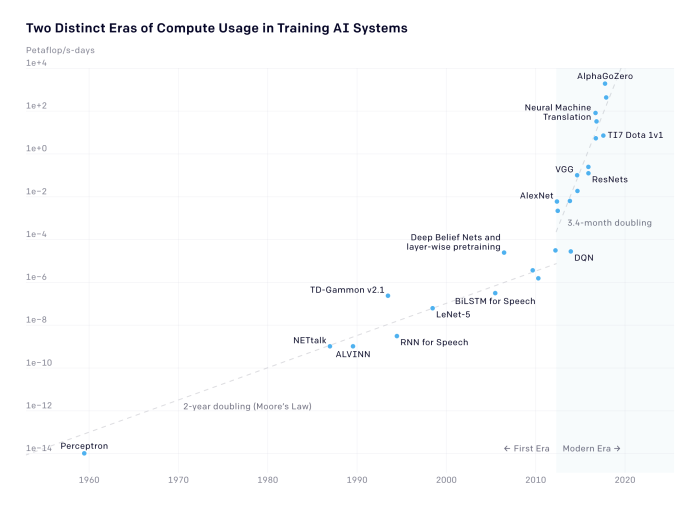It’s time to start making life decisions with AI in mind
August 15, 2025
By Matthew Pietz (and no AI)
In some ways, the accelerating pace of AI feels like the climate crisis: there are startling headlines, ubiquitous predictions from talking heads about what future years hold, and, for many people, a sense of helplessness that translates to a near-aversion to the topic. Because it feels there’s nothing we can do, it’s tempting pass over yet another article on this technology’s latest impacts.
And yet, while AI holds the potential to make our lives more comfortable and prosperous, its meteoric rise is also like the climate crisis because there are things we can and must do to mitigate the chance of worst-case scenarios, and to ready ourselves for potential shocks to society.
This applies to life decisions for the average person. Even if your job feels safe at present, you world may be turned upside down. There is good reason to believe that any decision affecting your life more than roughly three to five years from now–your childrens’ education, health care choices, insurance policies, real estate–should factor in the rise of AI.
Is it time to act already?
ChatGPT regularly fails at basic math, and can’t count the B’s in “blueberry.” Its short-term memory is atrocious. Should we really believe such a tool is about to cause a revolution?
Naturally, opinions vary widely, but it is useful to keep in mind the long-term perspective. Measuring progress in AI is notoriously tricky, but the “compute”, or the amount of data needed to train a system, is generally accepted as a proxy. The chart below shows how the compute is increasing exponentially since 1960. It is not a smooth curve, and indeed progress at the frontier will always be made of smaller leaps and drops. The performance of ChatGPT 5 feels to some frustrated users like one such drop. But the direction of progress is clear from this and many other datasets (including that of consistently accurate futurist Ray Kurzweil): it is forward, and accelerating.
Source: Open AI. For context see MIT Technology Review.
The top scientists at the companies developing the most advanced AI–Microsoft, Google, Anthropic and more–consistently predict AI will exceed human-level performance in three to five years. One would think these people have most incentive to say there’s plenty of time to put guardrails in place before AI could get out of control, or that we understand everything AI is doing and can do. But while they do tout the benefits, most are saying we aren’t ready for what’s coming, or for how soon it’ll arrive.
What does it mean at the individual level?
The idea of smarter-than-human machines in three to five years, or even ten, provokes anxiety. And AI is just one technology speeding up: synthetic biology and gene editing are also growing by bounds, and our ability to home manufacture items may expand soon as well.
We can’t know exactly what the next decade will look like, but we can try to plan.
We all have to make decisions that may only pay off years down the road, or have effects that last for decades: buying a house, choosing a course of study, picking a city to live in, buying insurance, investing in an enterprise. How do we make these decisions if the world in several years has 80% of knowledge-based jobs done by machines? If medical treatments rocket ahead through gene editing, promising cures for serious diseases? If instability has risen due to disruptions in the economy? If some version of 3D printing lets just anyone manufacture small, lethal drones?
Despite the many unknowns the rise of technology introduces into these decisions, an individual can take steps to improve the likelihood of better outcomes for themselves and their loved ones. And the time to think through these steps, and start taking them, is now.
Future Keranaut posts will go into more detail about the areas of life we can and should plan for differently, with AI in mind. The Keranaut team is made of specialists with deep expertise in a variety of industries and important topics for the transition to a more AI-infused society. The topics we’ll be addressing include:
Education: Will universities look anything like they do today, once people can have a smarter-than-human tutor in their home? What subjects will it make sense to study? How should we think about saving for college?
Work: What jobs are more AI-proof? If the AIs are truly smarter than people at essentially everything, what will people want to pay other people for? How will I define myself if not through my current job and industry?
Medicine: With rapid advances in DNA editing and protein folding, what medical advances are possible in coming years? Should affect decisions now to seek treatment for life-threatening conditions? How could these technologies be used by bad actors?
Advocacy: How can I volunteer or join a campaign for stronger controls on AI developers and more public visibility into what they are doing? Who are the allies in this fight and what are they trying to accomplish?
Mental wellness: How can I deal with my feelings of anxiety about AI? Does anyone else feel the same way, and if so how can we support each other?
Scenario preparation: Is it paranoid or extreme to plan for systems breaking down, even briefly, at some point? If not, what are reasonable steps to take? How is preparing for AI-caused system lapses different from other scenario preparation?
However daunting some possible futures may be, we at Keranaut believe humanity does have the time and ability to make the world a more prosperous place with the aid of technology. It won’t just happen, though. We have to steer the ship there, together.
Click here to subscribe and be notified of future posts.

